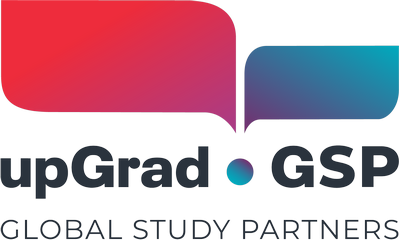Apart from Ireland’s top-notch universities, excellent study experience and engaging educational environment, the country is an attractive study-abroad destination because of the high Ireland student visa success rate. It stands at around 96%, with only one to four per cent of applicants getting rejected. Moreover, rejected applicants still have the option to reapply, giving them a second chance to pursue their dreams of studying in the country. In this article, we talk about the Ireland student visa, including the different types available and the requirements and application processes for each.
Is it easy to get a student visa for Ireland?
Getting a student visa for Ireland is easy. As long as a student follows the right process, goes through the proper application channels and provides complete and accurate information, there’s a good chance that their student visa application will be approved. Additionally, the Ireland student visa process is fairly simple. Students only need to apply online, and then submit the required documents at the relevant visa office, embassy or consulate in their country.
Types of Ireland student visas
Students interested in studying in Ireland can choose between two student visa options:
Short-term “C” visit (study) visa
The short-term “C” visit (study) visa is for applicants from a visa-required country who aim to attend a short course of 90 days or less. The visa allows them to travel to Ireland for up to 90 days for purposes of tourism or short-term study, e.g. to complete a short-term English language course. It restricts work (paid or unpaid) of any kind. It also restricts the use of any publicly funded services, such as a public hospital.
Requirements for a short-term “C” visit (study) visa
Students applying for a short-term “C” visit (study) visa must submit the following requirements:
- application form: An accomplished sheet from the Irish Online Visa/Preclearance Application Facility (AVATS) that’s printed, signed and dated.
- application letter: A signed and dated letter explaining why one wants to come to Ireland. It must include arrival and departure dates, as well as a commitment to obey the visa conditions, not to rely on public services and to leave Ireland before the visa expires.
- study plan: A description of the student’s plans in Ireland, including their accommodation, details of their educational institution and travel and medical insurance information.
- proof of fee payment: Students who are exempt from paying the visa fee must include documents to prove exemption.
- passport: The current passport must be valid for at least six months after the intended date of departure from Ireland following visits.
- two (2) passport-sized colour photographs: At the back of each photo, the applicant must sign their name and write their visa application transaction number from AVATS.
- finance plan: Proof of adequate financial support.
- proof of return: Evidence that the student will leave Ireland when their visit ends. One can exhibit strong ties through work, education, family or property.
- visa refusals: Applicants who were ever refused a visa by any country must type or write a description about it. This also requires the original letter sent to the student by the authorities that refused their application.
Long-term “D” study visa
The long-term “D” study visa is for applicants who wish to study in Ireland for more than three months. This is the most common study visa in Ireland as it applies to programs like diplomas, certificates and degrees.
Can you work on a student visa in Ireland?
Some students with a long-term “D” study visa are allowed to work. Degree program students may engage in casual employment if they are:
- registered with Stamp 2 permission
- enrolled on a course listed on the Interim List of Eligible Programs (ILEP)
- attending a full-time education at or above an ordinary bachelor’s degree
- on a course of at least one year’s duration.
- compliant with the Universal Social Charge, Pay Related Social Insurance, employment laws and taxation requirements.
Casual employment is defined as up to a maximum of 20 hours of part-time work per week during the academic semester or full-time work of up to 40 hours per week during normal college holidays. Students are not allowed to work more than the given time limits. They also can’t conduct business, be self-employed or work a permanent full-time job.
Requirements for a long-term “D” study visa
Long-term “D” study visa applicants must provide the following requirements:
- application form: A completed, signed and dated sheet from AVATS.
- application letter: A letter stating one’s reason for studying in Ireland and arrival and departure dates. The letter must also confirm a commitment to obey the visa conditions in full, not rely on public services and depart Ireland before the student’s immigration permission expires.
- two (2) passport-sized colour photographs: Photos must not be more than six months old. The applicant must print their name and visa application reference number on the back of each one.
- current passport and a full copy of all previous passports: The current passport must be valid for at least 12 months after their proposed date of arrival in Ireland.
- evidence of enrolment to a privately funded course: A Letter of Acceptance from the college that confirms acceptance and enrolment, provides details of the course and states the amount of fees payable (and the amount paid).
- evidence accounting for any gaps in educational history: Details of the student’s educational and employment history.
- evidence of fee payment to a college: A copy of an Electronic Transfer of Funds (ETF) to the Irish bank of the college or a valid receipt showing course fees have been lodged.
- evidence of academic ability: Proof that the student can follow their chosen course, e.g. previous exam results, qualifications, transcripts, etc.
- evidence of English (or Irish) proficiency: A certificate from an English proficiency test provider that shows an adequate level of English comprehension.
- proof of financial stability: Proof of adequate funds to support one’s stay in Ireland.
- private medical insurance: Evidence that the student has obtained private medical insurance coverage. Some colleges may arrange this on the applicant’s behalf; in this case, it must be stated on the Letter of Acceptance.
- previous visa refusals: Details on any instances wherein the applicant has been refused a visa in the past for any country.
- summary of finances for study visa application: A financial summary form (FSF) for study visa applications.
Unaccompanied students under 18 years must also provide their birth certificate, proof of consent from their parent or legal guardian, evidence of accommodation and a vetting certificate and a statement accepting no entitlement on the part of other family members to join the student in Ireland.
How to get an Ireland student visa
Obtaining an Ireland student visa is straightforward. Here’s a step-by-step guide on how to get a student visa in Ireland.
1. Create a visa application online
The Ireland study visa application is done online. Students must first complete the online application process through AVATS. The system will generate an application form that the applicant should complete, print, sign and date.
2. Pay the visa application fee
Visa application fees currently cost €60 for single-entry applications and €100 for multiple-entry ones. Extra charges (e.g. consular fees) may apply. Some applicants may be exempt from paying the visa fees. It’s best to visit the relevant visa office, embassy or consulate to know about expenses and local payment options.
3. Submit required documents
After completing the application form, students will be given instructions for document submission. These should be submitted to the stated application office, which could be a Dublin visa office, an international visa office or an Irish embassy or consulate in the applicant’s home country.
Processing of student visa applications varies between countries and visa offices, embassies or consulates. The time may also be affected by the volume of applications being processed at certain periods during the year. Generally, students can expect a decision within eight weeks from the date of lodging their application.
If rejected, applicants can appeal the decision without paying an additional fee. The student must simply submit an appeal within two months of the date on their letter of refusal. Keep in mind that appeals are only permitted once per application.
Get Ireland student visa help
upGrad GSP maintains a solid network of partner recruiters and institutions that can help students achieve their dreams of studying in Ireland. Contact our business development experts to know more.




